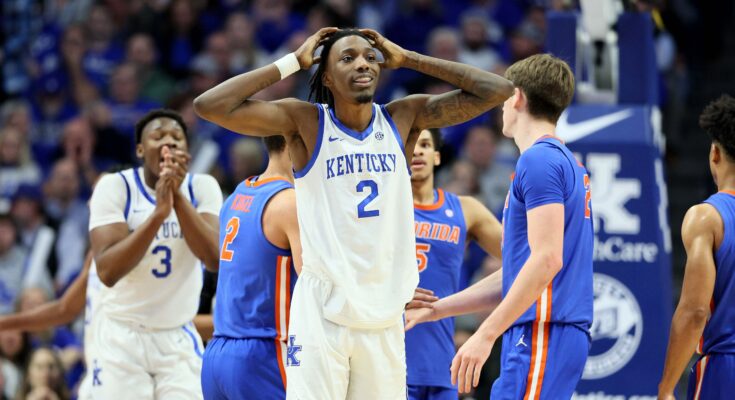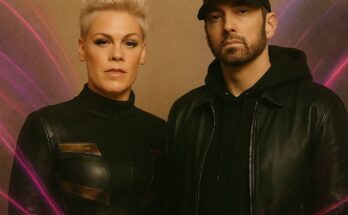Archie Goodwin Finally Breaks His Silence on Kentucky’s Tumultuous Season: ‘Never Got to Say This’
For years, the story of Archie Goodwin’s lone season at Kentucky has lingered like an unfinished chapter in the minds of Big Blue Nation. The highly touted guard came to Lexington in 2012 as part of one of John Calipari’s most hyped recruiting classes, carrying the promise of greatness and the burden of expectation. He was supposed to be the next in a long line of Kentucky stars who would dominate college basketball before making the leap to the NBA. Instead, his one season in blue became one of the most chaotic and disappointing in the program’s modern era—a season defined by inconsistency, injuries, and the crushing weight of what could have been. Until now, Goodwin had stayed mostly quiet about that experience. But in a candid and emotional reflection, he has broken his silence, and what he revealed offers a raw, unfiltered look into a year that still stirs debate among fans and analysts alike.
When Archie Goodwin speaks about his time at Kentucky, there’s no bitterness in his voice—just honesty. He begins by admitting what most suspected but never truly heard confirmed: the pressure was overwhelming. Coming out of high school as a McDonald’s All-American and a five-star recruit, Goodwin was celebrated as a cornerstone of a class that included players like Nerlens Noel, Alex Poythress, and Willie Cauley-Stein. The previous year’s Kentucky team had just captured the national championship, producing Anthony Davis and Michael Kidd-Gilchrist, and the expectation was that Goodwin and company would keep the dynasty rolling. But basketball, like life, rarely follows the script.
“People think we didn’t care or didn’t work hard,” Goodwin says, pausing as if the weight of that assumption still lingers. “But the truth is, we wanted it just as bad as anyone. It just… it didn’t click the way it was supposed to.” Those words frame the reality of that 2012–13 season. The Wildcats stumbled out of the gate, battled injuries—including the devastating ACL tear to Nerlens Noel that effectively ended their championship hopes—and ultimately missed the NCAA Tournament entirely, falling in the first round of the NIT to Robert Morris in a game that has since become infamous in Kentucky lore. For a fan base accustomed to Final Fours and banners, the collapse was unthinkable. For the players living it, it was soul-crushing.
Goodwin admits that the season’s unraveling wasn’t just about injuries or bad luck. It was about chemistry—or the lack of it. “We were all talented,” he says. “But talent isn’t enough in college basketball. You need leadership, you need guys willing to sacrifice, and honestly, we didn’t have that balance.” He doesn’t point fingers, nor does he absolve himself of responsibility. In fact, one of the most striking aspects of his reflection is the ownership he takes for his role in the struggles. “I put too much pressure on myself to be the guy,” he says. “When things started going wrong, I felt like I had to fix everything. That’s not how basketball works. And when you’re 18 years old, you don’t always see that.”
Those words offer a glimpse into the mental toll of being a freshman phenom at a school where basketball isn’t just a sport—it’s a religion. Goodwin recalls the constant scrutiny, the relentless criticism from fans and media, and the internal battle to tune it all out while trying to grow as a player. “Every game felt like life or death,” he admits. “When we lost, it wasn’t just a loss—it was like the whole world was ending. You start carrying that weight, and it eats at your confidence.”
Despite the struggles, Goodwin had moments of brilliance during that season, flashes of the explosive talent that made him a coveted recruit. He averaged over 14 points per game, led the team in scoring, and showed a fearless attacking style that hinted at NBA potential. But in a season defined by unmet expectations, those highlights were overshadowed by the team’s collective failure. The narrative became one of disappointment, and for Goodwin, that narrative followed him long after he declared for the draft and was selected in the late first round by the Phoenix Suns.
So why speak now? Why, after years of relative silence, is Archie Goodwin finally telling his side of the story? His answer is simple: closure. “I never got to say this to the fans, to the people who supported us through all that,” he says, his tone softening. “We felt your disappointment. We felt it every day. And I just want you to know—it wasn’t from lack of effort. We gave everything we had, even when it didn’t look like it. That year taught me more about life than any other season I’ve ever played.”
That perspective is shaped by a decade of professional experience, including stints in the NBA and overseas. Goodwin has seen the highs and lows of the game, and in hindsight, he views his Kentucky chapter not as a failure but as a lesson. “When you’re young, you think success is guaranteed if you’re talented. That season taught me that success takes so much more—chemistry, leadership, timing. It humbled me. And honestly, I’m grateful for that now.”
Still, the scars of that season linger, both for Goodwin and for the fans who lived through it. The 2012–13 team is often cited as a cautionary tale, a reminder that even the most talented rosters can falter without cohesion. But Goodwin hopes that by sharing his truth, he can humanize the story. “We weren’t just names on a roster. We were kids trying to figure it out under the brightest spotlight in college basketball. And when it didn’t go right, it hurt us more than anyone will ever know.”
As our conversation winds down, Goodwin leaves one final thought—a message that feels less like an apology and more like a sincere thank-you. “To Big Blue Nation: I know that season wasn’t what you expected. It wasn’t what we expected either. But your passion, even when it felt harsh, showed us what Kentucky basketball means to people. And that’s special. That’s something I’ll carry with me forever.”
In a world where athletes are often reduced to statistics and headlines, Archie Goodwin’s words cut through the noise with something rare: authenticity. He didn’t come to make excuses or rewrite history. He came to speak his truth, to offer the clarity that time and distance can bring. And in doing so, he reminds us that behind every “disappointing season” is a story—a human story—of dreams, pressure, failure, and growth. For Kentucky fans, that story will always sting. For Archie Goodwin, it will always define a turning point. And for both, perhaps this moment offers what was missing for so long: understanding.



